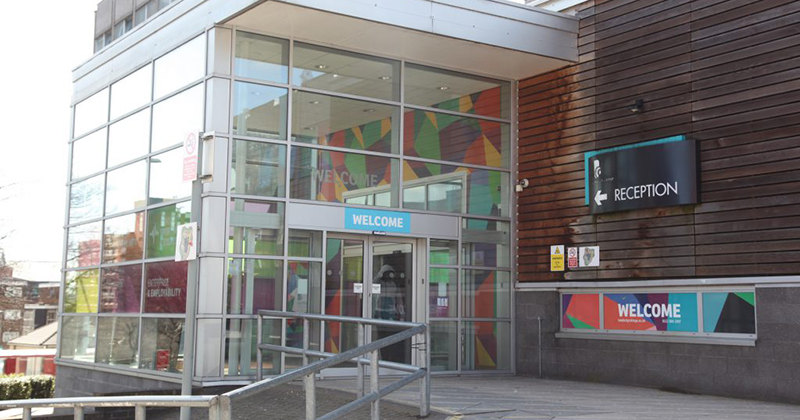The NHS and local councils are being called on by government to aid the T Level placements crisis as colleges rush to find enough for every student starting classes this year.
Health Education England (HEE), which oversees training for the NHS, is commissioning research to gauge the viability of health service trusts to host industry placements of at least 45 days.
This is not just in the health and science routes, but for the digital T Level route too, for which colleges have told FE Week finding placements has been a “big problem”.
The country’s 150-odd local councils are also being pushed to offer at least one placement each in the next 12 months while the Department for Education has dispatched other sector bodies to drum up support from the private sector.
A specification document for the HEE tender reports that “T level providers have not been able to source all industry placements locally” for over 8,000 students expected to enrol on the flagship qualifications this year.
The document reveals the Education and Skills Funding Agency’s employer engagement and apprenticeships performance division is looking to support 30 per cent of those placements at a national level.
HEE will now undertake a “maturity modelling exercise of NHS Trusts that could support wave two industry placements”, which will provide a “clear picture of the ‘hot’ and cold’ spots of placement readiness and capacity”.
Students on the flagship level 3 qualifications, which launched last year, are expected to complete a minimum of 315 hours on a placement.
The DfE has already relented to introducing radical flexibilities for placements, in what is fast becoming a headache for officials.
Education secretary Nadhim Zahawi told the Association of Colleges conference last month he had seen evidence that there would be sufficient numbers of employers and placements available when T Levels are at full scale.
Yet FE Week has already heard from principals of T Level colleges that they currently have students who cannot find industry placements.
To help providers source placements, the government has made millions of pounds available in capacity and delivery funding to support them to organise placements in the build-up to their rollout.
Securing digital T Level placements ‘difficult before Covid and continues to be’
Colleges have given a lukewarm welcome to extra NHS support and want more employers to invest in T Levels and greater flexibility from the government.
Leeds City College’s head of careers, work experience and progression Gina Yates said working in partnership with the local NHS, other education providers and local authorities means they have enough placements for the over 40 students on the health T Level they started this year.
But, she says, the digital route they also rolled out in September is a “completely different story”: they need 22 placements but have only confirmed six so far.
The NHS’s digital teams have proven quite “difficult to pin down – we seem to have lots of conversations with them, but those don’t result in placements”.
Securing digital placements in Leeds with commercial companies is also “quite difficult,” Yates says: “It was difficult before the pandemic, and it continues to be difficult because of the changing working patterns.”

One of the flexibilities the DfE introduced last month for industry placements means students can spend a maximum of 40 per cent of their placement hours remotely, but this must take place at either the provider’s site, a training centre or simulated working environment run by the employer.
Yates says this was the worst of both worlds as digital employers are now largely working from home, so students cannot get experience in the workplace and cannot build the skills to work from home.
Colleges could also face “huge competition” for NHS placements with higher education institutions, she says, though this has not affected T Levels yet.
Greater support from the NHS would “definitely help,” but other large organisations need to be “investing” in T Levels as well, she believes.
‘If remote working is the norm, the placement should map that’
Much like Leeds, Truro and Penwith College curriculum development director Adele Bull has told FE Week their local NHS and healthcare community believes it can place the provider’s 26 health T Level students and she welcomed the extra HEE support.
Placing just five students on the digital T Level has proven “really challenging,” as employers are working remotely from their homes or sheds, which creates safeguarding problems.
Despite the virtual placement flexibility, a “significant amount of placement needs to be in the workplace,” so Bull argues: “If an industry as a norm is remote working, it makes sense that the placement maps that.”
The college also rolled out the science T Level this year with 16 students, but it has proved “challenging” to find employers owing to the “rurality of our location”.
Construction and councils being pushed to support T Level students
A DfE spokesperson said: “We have been working with key intermediaries in the public sector to ensure the provision of industry placements across a broad range of public sector organisations.”
Officials are also “working with a variety of key intermediaries across all sectors,” such as construction, to “to help raise awareness of T Levels and encourage an even greater number of employers to offer placement opportunities”.
CITB (the Construction Industry Training Board) is one of these sector intermediaries and says its regional teams are speaking with colleges and construction employers to find out what they need in order to support placements.
The organisation has also been holding webinars to encourage and build understanding of T Levels among business.
The Local Government Association has been carrying out specific work with the DfE to build a supply of public sector placements for both 2020 and 2021 students and believes the qualifications are “an important way of supporting talented young people into a successful and fulfilling career in local government”.
A spokesperson said the association is “aiming to raise awareness and help establish T Levels as credible pathways for local councils so they provide quality placements for students”.
The association is acting as a broker between employers and providers, with one current campaign focusing on encouraging councils to offer at least one placement over the next year.
But the spokesperson said they are “hoping more councils will opt to maximise the opportunity,” to access the government’s £1,000 cash incentive, given to employers for each placement they host, while they are available – until July 2022.

















I think FE Week should submit this story as evidence to the current Bill Committee looking at at the Skills and Post 16 Bill – where after countless suggestions from Colleges we have no compulsion on employers to do anything – unlike the much vaunted systems in Germany and the Netherlands.
Aren’t T levels being driven by employer demand and skills gaps, aren’t employers on board with all of this – rhetorical questions. Once again the public sector is expected to swing into action to support a policy. This is the same public sector, who like the Civil Service itself, is mainly working from home. The call on the NHS is equally tin-eared, I’m sure in an overstretched service they can find time for thousands of 45 day placements.
My favourite line is the DfE spoken person “hoping more councils will…” – HOPING, says it all. Explain that to a parent or young person at an IAG session – yes we hope your son/daughter can get a placement; we hope your son/daughter will be able to complete this new an exciting qualification but can’t promise the vital placement bit that will enable them to do that.
Thankfully as present students have choice in this complex non-binary world of ours.
It’s always been hard to find placements for students, in the NHS for Health and Social Care Students. Especially on level three programmes. They are usually asked to apply for the local NHS volunteer programme, by the time they are interviewed they have completed their course and have used care homes, schools, riding schools for people with learning and physical disabilities. When you have 100 learners to rotate through placements to suit the curriculum and specifications, it’s stressful for all. Especially when those learners already hold an enhanced DBS check, which should make it easier to attend an NHS placement.